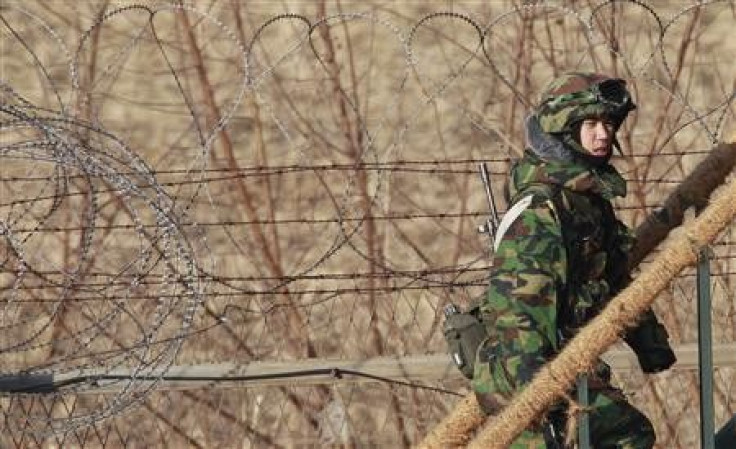S. Korea waves olive branch

South Korean President Lee Myung-bak was forceful, even bellicose, in speaking about North Korea on Monday. But on Wednesday, Lee struck a conciliatory note, expressing a desire for dialogue with his country's difficult neighbor to the north.
Lee said Seoul's tough military posture alone will not ease tensions on the Korean peninsula.
Earlier in the week, in a radio address to the nation, Lee referred to North Korea as the most belligerent government on earth. He said North Korea looks for signs of division in the South as opportunities to attack, and called for national unity.
Our lives and the survival of the nation depend on it, he said.
Lee's rhetoric has grown tougher since the North's attack on Yeonpyeong island on Nov. 23, which killed two South Korean marines and two civilians. But Lee carried an olive branch with him on Wednesday.
He not only spoke of a dialogue with North Korea but said that international negotiations to dismantle North Korea's nuclear weapons programs need to revive in the new year.
According to South Korea's Yonhap news agency, Lee said his country has no choice but to resolve the problem of dismantling North Korea's nuclear program diplomatically through the six-party talks.
The six-party talks, aimed at getting North Korea to abandon its nuclear program in exchange for foreign economic aid and diplomatic concessions, broke down in 2008. China, one of the six nations involved, has called for a resumption of negotiations, saying the Yeonpyeong incident has created an emergency situation for the region.
The six nations are South Korea, the U.S., Japan, Russia, China and North Korea. The U.S., Japan and South Korea were cold to China's idea, saying that they did not wish to award North Korean belligerence.
But Lee's statement may signal a change not only for South Korea, but also for South Korea's biggest ally.
This is the time for us to talk about the nuclear issue at [the] six-party talks format. So I think this is based on a close cooperation with Washington and Seoul, including Japan, said Choi Jin-wook, director of the Center for South-North Korean Cooperation Studies at the Institute for National Unification in Seoul.
Since the six-party talks stalled, North Korea has conducted missile and nuclear tests. Earlier this year, the North was blamed for a torpedo attack on a South Korean navy vessel in the Yellow Sea that killed 46 South Korean sailors. North Korea denied any involvement.
The South suspended cross-border trade with the North following the incident.
There were other border incidents with shots fired but no injuries, just prior to the G20 Summit in Seoul in November. Then, following the summit, came the deadly shelling of the island. North Korea said that South Korea's war games, some conducted with live fire, provoked the attack.
The South Korean Unification Ministry put out a report prior to President Lee's conciliatory speech, saying that Seoul will seek dialogue with Pyongyang to resolve crucial issues.
The report outlined three policy goals for 2011: to lead North Korea to change in a positive manner; to establish sound inter-Korean relations; and to begin preparations for reunification.
© Copyright IBTimes 2024. All rights reserved.











